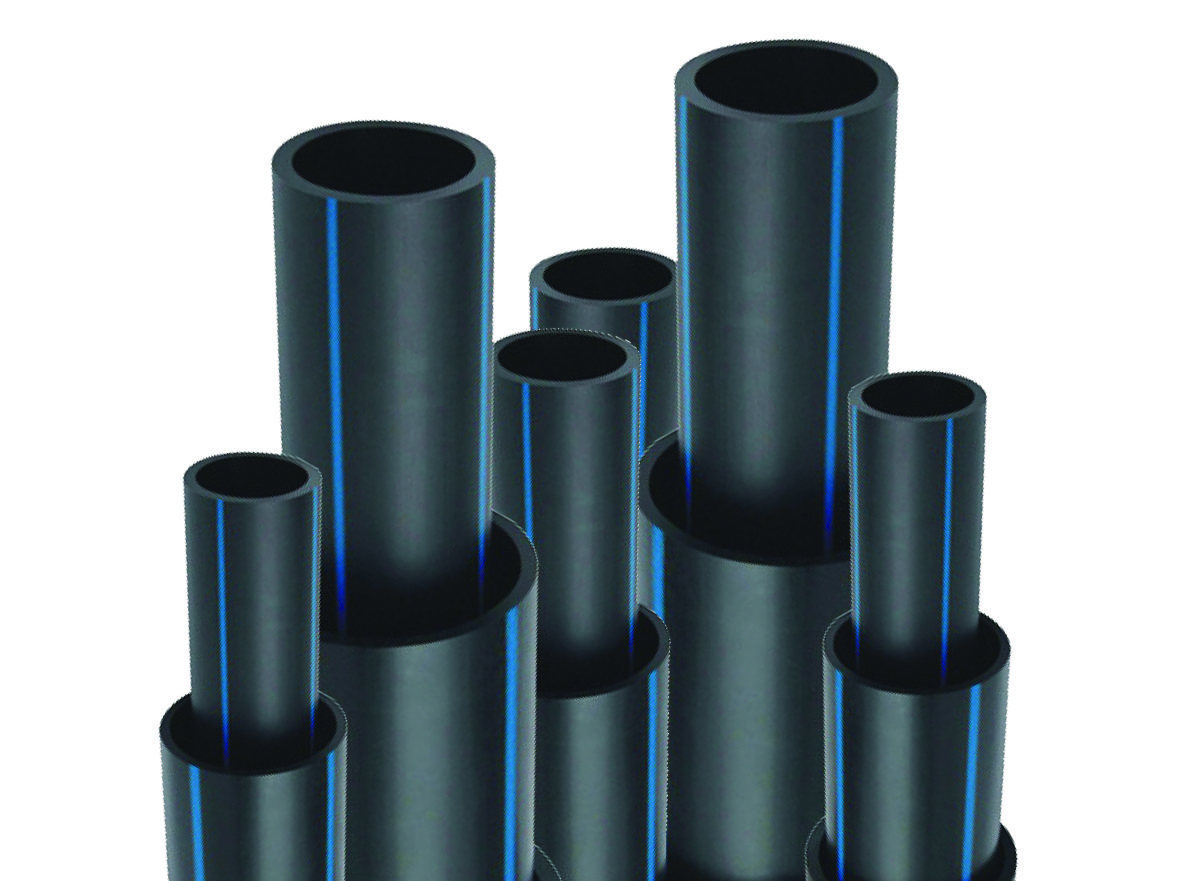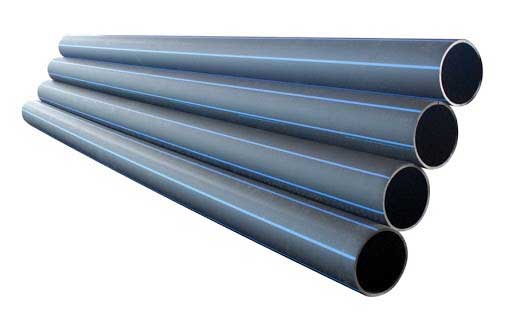A Comprehensive Overview to the Different Usages of HDPE Pipeline in Construction and Market
HDPE pipelines have actually become a critical element in contemporary building and commercial applications. Their one-of-a-kind residential properties, such as resistance to deterioration and lightweight layout, make them suitable for a wide variety of usages. From water systems to farming irrigation, HDPE pipelines use remedies that enhance efficiency and sustainability. Understanding their diverse applications is necessary for experts aiming to maximize facilities. What certain benefits do these pipes bring to each industry?
Supply Of Water and Distribution Systems
Supply of water and distribution systems are crucial components of urban framework, usually depending on high-density polyethylene (HDPE) pipelines for their toughness and efficiency. These systems transportation safe and clean water from treatment facilities to customers, making sure ease of access and safety. HDPE pipelines are favored for their resistance to corrosion, chemicals, and severe temperatures, which boosts their long life and decreases maintenance prices. Furthermore, their lightweight nature allows for easier installation and transportation, making them optimal for different urban and country applications.
The adaptability of HDPE pipes allows them to be installed in limited spaces and around barriers, reducing the demand for substantial excavation (Pipe Manufacturing Midland TX). Furthermore, their smooth interior surface reduces rubbing losses, enhancing water flow prices. As cities remain to grow, the need for reliable water supply systems raises, positioning HDPE pipes as a lasting remedy for contemporary framework jobs. Their tested track record makes them a favored choice amongst designers and metropolitan planners alike
Wastewater Monitoring and Therapy
Effective wastewater administration and therapy are necessary for preserving public health and wellness and environmental high quality. HDPE pipelines play an important duty in this procedure because of their toughness, resistance to corrosion, and ability to endure rough chemicals. These pipes are commonly used in various applications, including sewage systems, stormwater drain, and wastewater therapy facilities. Their light-weight nature facilitates much easier installment and transportation, lowering labor expenses and time.
On top of that, HDPE pipes have a smooth interior surface area that lessens rubbing loss, promoting reliable circulation prices. They are also less susceptible to leakages and failures contrasted to standard materials, making sure that contaminants are included successfully. Additionally, their adaptability permits versatility in numerous soil conditions, making them appropriate for varied ecological settings. As sectors significantly focus on lasting methods, making use of HDPE pipelines in wastewater management systems straightens with objectives for minimizing environmental influence and improving resource recuperation.
Agricultural Watering Solutions
In agricultural setups, reliable watering services are important for enhancing crop yields and managing water resources. HDPE (High-Density Polyethylene) pipes play a crucial function in modern watering systems because of their toughness, flexibility, and resistance to rust. Their ability to stand up to high pressures makes them suitable for both surface and subsurface watering applications, making sure consistent water circulation throughout areas.
Farmers can use HDPE pipes in drip irrigation systems, which supply water straight to plant origins, lessening wastage and promoting healthy development. Additionally, these pipes are lightweight and easy to install, reducing labor expenses and setup time. Their long lifespan and reduced maintenance needs further improve their appeal in agricultural methods.
Additionally, HDPE pipelines are ecologically pleasant, as they can be reused and do not leach hazardous chemicals right into the dirt. This makes them a sustainable option for farmers intending to embrace environment-friendly agricultural approaches while making the most of performance.
Industrial Applications and Processes
Convenience is a trademark of HDPE pipelines, making them vital in various commercial applications and procedures. These pipes are commonly utilized in chemical handling markets because of their exceptional resistance to a broad variety of destructive compounds. HDPE's lightweight nature, incorporated with high tensile toughness, enables for simple installation and lasting efficiency sought after settings.
In the oil and gas sector, HDPE pipelines play a crucial function in moving hydrocarbons and gases, thanks to their durability and adaptability - hdpe pipe fittings Midland TX. In addition, get more they are utilized in mining procedures for the transportation of slurry and other materials, where standard piping systems may stop working
In addition, HDPE pipelines are increasingly made use of in producing facilities for water system lines and wastewater administration. Their capacity to stand up to extreme temperatures and stress makes them suitable for a variety of industrial procedures. On the whole, HDPE pipelines add greatly to performance and safety across diverse industrial applications.
Stormwater Administration and Water Drainage Systems
Stormwater administration and drain systems are critical parts in urban infrastructure, created to take care of excess rainfall and minimize flooding threats. High-density polyethylene (HDPE) pipelines are progressively made use of in these systems due to their sturdiness, adaptability, and resistance to corrosion. These pipes effectively transport stormwater far from populated locations, minimizing surface overflow and protecting against waterlogging.
HDPE's lightweight nature facilitates much easier setup, decreasing labor prices and building time. Furthermore, its resistance to chemicals and ecological stress factors warranties longevity and integrity in different environments. In enhancement to typical water drainage applications, HDPE clogged plumbing pipes are also employed in innovative services such as eco-friendly facilities, that includes rainfall gardens and permeable pavements.

Frequently Asked Questions
Just How Does HDPE Pipeline Compare to PVC Pipeline in Expense?
In general, HDPE pipeline often tends to be extra expensive than PVC pipeline due to its boosted durability and versatility. Nonetheless, long-term expense considerations, such as upkeep and lifespan, might prefer HDPE in particular applications.

What Is the Life-span of HDPE Piping Under Diverse Problems?
HDPE pipes typically have a life-span of 50 to 100 years, depending upon ecological conditions, installment methods, and usage. Factors such as temperature level, soil type, and direct exposure to chemicals can significantly affect weblink their toughness.
Can HDPE Pipeline Be Recycled After Usage?
Yes, HDPE pipes can be reused after use. The reusing procedure includes melting down the product, permitting it to be repurposed into new items, therefore promoting sustainability and lowering environmental effect connected with plastic waste.
Exist Any Type Of Certain Setup Difficulties With HDPE Pipes?
Installation challenges with HDPE pipes consist of correct jointing methods, making sure appropriate trench conditions, and taking care of thermal expansion. In addition, experienced labor is required to handle customized tools, which can make complex the installation procedure in numerous environments.

What Accreditations Should I Search For When Buying HDPE Pipings?
When acquiring HDPE pipelines, one must try to find accreditations such as ASTM, AASHTO, and ISO, which validate top quality and compliance with industry standards, guaranteeing resilience and performance in numerous applications. - Texas hdpe pipe manufacturer